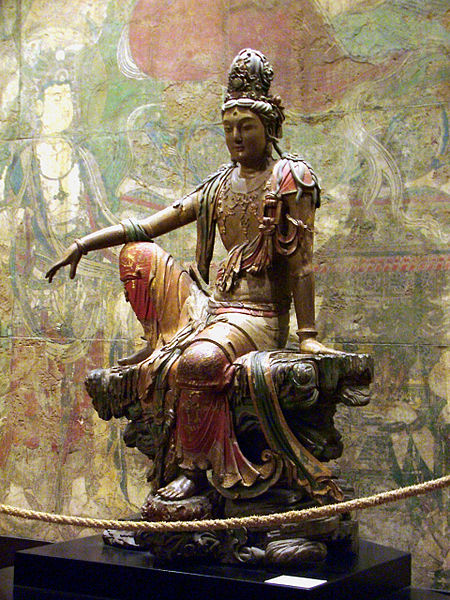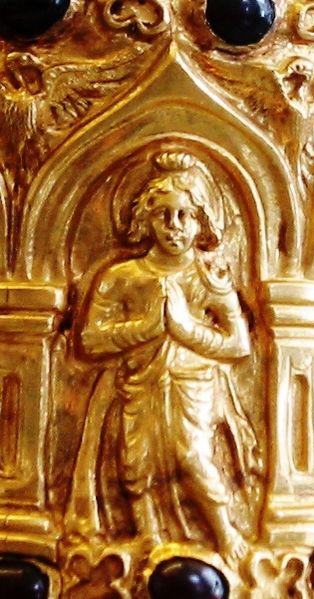Guanyin is a Bodhisattva associated with compassion. Guanyin is a common Chinese name for Avalokiteśvara in Chinese Buddhism and has been appropriated by other Eastern religions, including Taoism and Chinese folk religion. She was first given the appellation "Goddess of Mercy" or "Mercy Goddess" by Jesuit missionaries in China. Guanyin is short for Guanshiyin, which means "[The One Who] Perceives the Sounds of the World." On the 19th day of the sixth lunar month, Guanyin's attainment of Buddhahood is celebrated.
Wood carving of Guanyin with Amitābha on its crown. Northern Song Dynasty, China, c. 1025.
Shrine to a Tang dynasty (896) carved stone statue of the Thousand-Armed Guanyin (Chinese: Qianshou Guanyin) in Shengshui Temple (內江聖水寺) in Neijiang, Sichuan, China
Amoghapāśa Lokesvara (Japanese: Fukūkenjaku Kannon) with devas Brahma and Indra on either side dated to late 8th century) located at Tōdai-ji, Nara, Japan
Liao Dynasty (AD 907–1125) Chinese statue of the Guanyin Of The Southern Seas; Shanxi Province, China; 11th/12th century AD; Polychromed Wood – Wood with multiple layers of paint, H : 241.3 x L : 165.1 cm.; Nelson-Atkins Museum Collection; Kansas City, Missouri
In Buddhism, a bodhisattva or bodhisatva is a person who is on the path towards bodhi ('awakening') or Buddhahood.
A relief depicting Avalokiteśvara Bodhisattva in Plaosan temple, 9th century Central Java, Indonesia.
Probable early image of a bodhisattva (Bimaran casket, 50 CE)
Gandharan relief depicting the bodhisattva (future Gautama Buddha) taking a vow at the foot of Dipankara Buddha, Art Institute of Chicago
6th century painting of Maitreya, Kizil Caves, Cave 224








